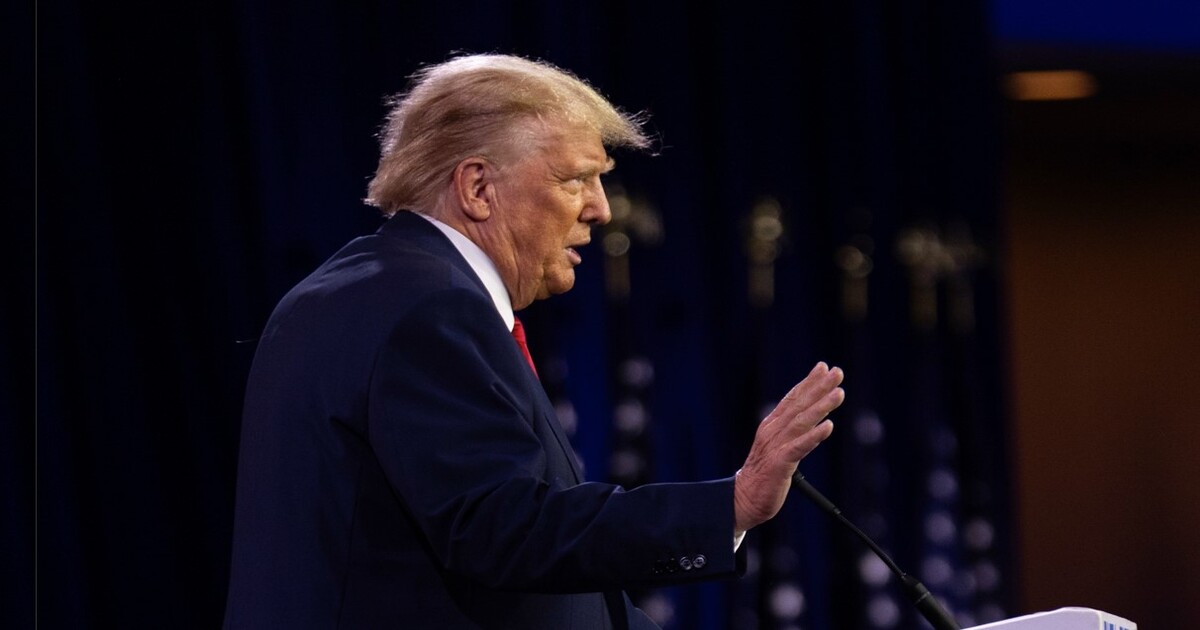Donald Trump: Dreaming of King James II’s Court in Exile?
Will the 45th U.S. President live out his remaining years in a comfortable palace, surrounded by fawning courtiers who pledge obedience to him as their rightful leader?
November 21, 2020

All indications are that Donald Trump’s supporters will still consider him the rightful President even after Joe Biden has taken the oath of office on January 20, 2021.
At least to date, his followers seem to show little respect for all the democratic traditions thought to have been long established in the United States.
The late 17th century precedent
If that is indeed the case, then Mr. Trump may be hoping to follow the path of a previous ruler, the English monarch James II. The British king was forced from power during the Glorious Revolution of 1688.
However, he lived out the last decade of his life in a comfortable French palace, surrounded by fawning courtiers who still pledged obedience to him as their rightful monarch.
Trump’s Jamesian dream — or nightmare?
In fact, Donald Trump who is, after all, facing pressing demands from creditors and lawsuits for tax evasion once he leaves the White House, may dream to live out his days in this type of royal exile.
Come to think of it, though, not everything about James II’s final years would appeal to Donald Trump.
James II, who ruled England from 1685 to 1688, was forced to abdicate the throne when his son-in-law, William of Orange, invaded England with 40,000 troops in 1688, at the start of the Glorious Revolution.
William had been secretly invited to invade by seven high-ranking Englishmen concerned that James was on a path to return England to Catholicism. That was a truly terrifying prospect for a country that had become Protestant when Henry VIII broke with Rome in 1533 — and which then experienced the terror of Henry’s Catholic daughter Mary I (Bloody Mary).
She burned Protestants at the stake as she tried to re-institute Catholicism during her brief reign, before Elizabeth I returned the country to the Church of England when she took the throne in 1558.
After landing on the Devon coast on November 5th, 1688, William of Orange advanced with his troops towards London. James II then panicked and fled to France, where he had already sent his wife and infant son.
A make-believe king
While William and his wife Mary (James II’s Protestant eldest daughter) were declared joint monarchs of England by a Parliamentary convention in February 1689, James was welcomed into France.
He was given a palace in the outskirts of Paris, at St. Germain-en-Laye, where he would live in exile, with about 200 courtiers still acknowledging him as the rightful king of England.
James and his courtiers lived comfortably with their expenses covered by Louis XIV, who continued to acknowledge James as King of England for the next decade.
Exile in Mar-a-Lago or farther away?
This vision of a court in exile might appeal to Donald Trump, although he likely won’t have to decamp to France. He will probably just go as far as Mar-a-Lago and surround himself with sycophants who may or may not ever acknowledge Joe Biden as the actual president of the United States.
But what if Trump has to sell Mar-a -Lago to pay off creditors? Then, the Jamesian vision of finding a foreign palace for himself and 200 courtiers underwritten by some accommodating foreign autocrat might become very appealing.
Nothing is for free
As attractive as James II’s court-in-exile might seem, however, Donald Trump would likely shirk from repeating James II’s actual experience.
After giving James II refuge in 1689, Louis XIV insisted that James don his battle armor, mount his horse and attempt to regain his kingdom and convert it to Catholicism.
At 57, James was no longer in his military prime (although certainly more battle-tested than Donald Trump). After invading Ireland, James lost to William at the Battle of the Boyne in 1690, giving up on his attempt to regain his throne.
His foreign host, Louis XIV, however, did not give up on his quest of restoring Catholicism to England. He continued to support James’s court-in-exile to turn it into a hotbed of opposition to the reigning English monarchs.
His scheme was to see James’s Catholic infant son grew of age enough to make his own attempt on the English throne in 1715. In the end, it wasn’t James II’s son, but his grandson, Charles Edward Stuart, who would make a final unsuccessful attempt to regain the throne in the Jacobite Rising of 1745.
So, in Trump dynasty terms, not Donald Jr., Eric Trump or Barron Trump, but one of his grandchildren, say, Ivanka’s son Joseph Frederick Kushner, to re-conquer the White House.
A quick reality check
There is admittedly no reason to assume that Donald Trump would ever expatriate. Even so, his foreign creditors will likely continue to exert an influence on him for the rest of his years.
Moreover, the threat he has brought to our democracy from within, with his repeated refusal to honor the outcome of the recent election, “the most secure in American history,” may be worse for today’s United States than the lingering foreign threat that the Jacobite court posed to the British throne between 1689 and 1745.
Unlike James, Trump’s no recluse
In a move that Donald Trump is unlikely to emulate, James II eventually became “a virtual recluse,” viewing his life in exile as a “penance for his former sins.” James was convinced that “Providence had marked out no other way for his salvation except suffering,” according to biographer J. S. Clarke.
In James’s final years, before his death in 1701, his habit of fasting and other means of bodily penance made him so frail that he alarmed his spiritual advisors.
While Donald Trump’s evangelical supporters apparently saw the 2016 election as an act of God that allowed reactionary Republicans to reshape the Supreme Court for the next generation, President Trump himself likely has no aspirations to do any penance for his sins.
Nor will he likely ever don a suit of armor and lead forth in battle his armed supporters whom he so often ignites with encouraging them to “stand back and stand by.”
Nevertheless, glitz-minded guy that he is, Donald Trump might still dream of a French palace and the largesse of a wealthy foreign monarch — as long as there are no expectations that he himself display any military courage or spiritual humility.
Takeaways
Will the 45th US President live out his remaining years in a comfortable palace, surrounded by fawning courtiers who pledge obedience to him as their rightful leader?
Donald Trump likely won’t have to decamp to France. He will probably just go as far as Mar-a-Lago to still be admired as a king by his followers.
What if Trump has to sell Mar-a-Lago to pay off creditors? Finding a foreign palace for himself -- underwritten by some accommodating foreign autocrat, might become very appealing.
James II eventually returned from his exile in France -- and became “a virtual recluse at St Germain,” viewing his life there as a “penance for his former sins.”
Trump might still dream of a French palace and the largesse of a wealthy foreign monarch -- as long as there are no expectations that he himself display any military courage or spiritual humility.

